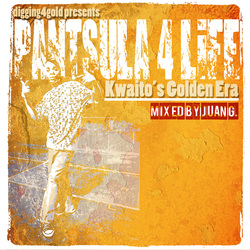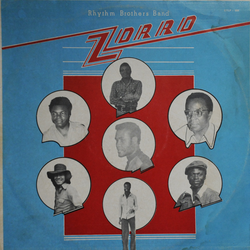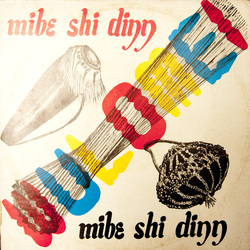
I've been trying to make this mix or the last four years. FINALLY, I can present it to you today.
Tracked out zip folder download here
My love affair with old school Kwaito started innocently enough on a sunny afternoon back in 2009. I saw the video for Alaska's "Accuse" during some throwback segment on TRACE (South African music channel) and I was hooked. A collage of Chuck Taylors and multi-colored beanies were accented by a simple call-and-response chorus over what sounded like (and has been since described by outsiders as) slowed downed chicago house. *(NOTE: This description is far too short-sided. For a more interesting analysis of kwaito's musical origins check out DJ ZHAO's write-up on the subject) The music was fun, the images gritty. A perfect combination. Unfortunately, It would take me years to accumulate enough of these older tracks to make sense of the sound and its progression.
Kwaito's rise parallelled the end of Apartheid and the beginning of democracy in South Africa. The music of that time exuded the collective sign of relief that black south Africans were experiencing. As a result, earlier hits were celebratory and gernerally more party-oriented.
There were exceptions however, including the aforementioned Alaska song, which condemns the negative reputations created by criminal activity, and the declarative "Kaffir" by Kwaito pioneer, Arthur, who's use of the derogatory term was meant as a stance against blatant racism by the white minority towards the black population.
Of course, the jubilation of independence eventually dissipated, and the music began reflecting a more somber reality. By 2002, the sound evolved into a moodier and darker soundscape, led by the prolific SA producer, DJ Cleo. Before catapulting South African house onto the world stage, he partnered up with a few local artists and began making a newer kind of Kwaito. His production for Makezekele and the late Brown Dash was often complimented with minor chords and theremin-like swirling notes. A new generation was coming of age, and, despite the promise of change after the end of apartheid, their reality in the townships was still pretty grim.
Nowadays, Kwaito has morphed into uptempo South African house, with little resemblance of its slower-paced past. Gone are the Pantsulas, who's khaki pants, Chuck Taylors and stiff beanies were reminiscent of the Addias jumpsuits of early NYC b-boys. Gone as well is the golden era vibe that seemed to embody some of the same musical qualities of hip-hop in the early 90s.
Its a shame, but luckily for y'all we can try to drift back with this mix. Enjoy!
Tracked out zip folder download here.
Track List:
01 Trybe - Madau
02 Thebe - Philly
03 Mapaputsi - I Really Like It
04 Alaska - Accuse
05 Alaska - Hosherr
06 Copper Head - Copper Head
07 Kabelo - Pantsula 4 Life
08 Mandoza - 50/50 feat. M'du
09 Arthur - Oyi Oyi
10 TKZee & Benni - Guz
11 Chiskop - Ziphiphani Lapho
12 Spikiri - Vat en Sit
13 M'du - Mazolo
14 MaWillies - Gagu
15 TKZee - Delela
16 Aba Shante - Girls
17 MaWillies - Intwejani
18 Mapaputsi - Expect
19 Chiskop - Klaimar
20 Trompies - magasman
21 TKZee - Palafala feat. S'bu
22 M'du - O Suna Mang (Ke Le Teng)
23 Jakarumba - Zong'thola Kahle
24 Jakarumba - Tussen
25 Mshoza - Kortes (Kasi Luv) feat. Mzambiya
26 Tokollo - Ndlovu Yangena
27 M'du - Siya Jola (Pk'Salayo)
Tracked out zip folder download here
My love affair with old school Kwaito started innocently enough on a sunny afternoon back in 2009. I saw the video for Alaska's "Accuse" during some throwback segment on TRACE (South African music channel) and I was hooked. A collage of Chuck Taylors and multi-colored beanies were accented by a simple call-and-response chorus over what sounded like (and has been since described by outsiders as) slowed downed chicago house. *(NOTE: This description is far too short-sided. For a more interesting analysis of kwaito's musical origins check out DJ ZHAO's write-up on the subject) The music was fun, the images gritty. A perfect combination. Unfortunately, It would take me years to accumulate enough of these older tracks to make sense of the sound and its progression.
Kwaito's rise parallelled the end of Apartheid and the beginning of democracy in South Africa. The music of that time exuded the collective sign of relief that black south Africans were experiencing. As a result, earlier hits were celebratory and gernerally more party-oriented.
There were exceptions however, including the aforementioned Alaska song, which condemns the negative reputations created by criminal activity, and the declarative "Kaffir" by Kwaito pioneer, Arthur, who's use of the derogatory term was meant as a stance against blatant racism by the white minority towards the black population.
Of course, the jubilation of independence eventually dissipated, and the music began reflecting a more somber reality. By 2002, the sound evolved into a moodier and darker soundscape, led by the prolific SA producer, DJ Cleo. Before catapulting South African house onto the world stage, he partnered up with a few local artists and began making a newer kind of Kwaito. His production for Makezekele and the late Brown Dash was often complimented with minor chords and theremin-like swirling notes. A new generation was coming of age, and, despite the promise of change after the end of apartheid, their reality in the townships was still pretty grim.
Nowadays, Kwaito has morphed into uptempo South African house, with little resemblance of its slower-paced past. Gone are the Pantsulas, who's khaki pants, Chuck Taylors and stiff beanies were reminiscent of the Addias jumpsuits of early NYC b-boys. Gone as well is the golden era vibe that seemed to embody some of the same musical qualities of hip-hop in the early 90s.
Its a shame, but luckily for y'all we can try to drift back with this mix. Enjoy!
Tracked out zip folder download here.
Track List:
01 Trybe - Madau
02 Thebe - Philly
03 Mapaputsi - I Really Like It
04 Alaska - Accuse
05 Alaska - Hosherr
06 Copper Head - Copper Head
07 Kabelo - Pantsula 4 Life
08 Mandoza - 50/50 feat. M'du
09 Arthur - Oyi Oyi
10 TKZee & Benni - Guz
11 Chiskop - Ziphiphani Lapho
12 Spikiri - Vat en Sit
13 M'du - Mazolo
14 MaWillies - Gagu
15 TKZee - Delela
16 Aba Shante - Girls
17 MaWillies - Intwejani
18 Mapaputsi - Expect
19 Chiskop - Klaimar
20 Trompies - magasman
21 TKZee - Palafala feat. S'bu
22 M'du - O Suna Mang (Ke Le Teng)
23 Jakarumba - Zong'thola Kahle
24 Jakarumba - Tussen
25 Mshoza - Kortes (Kasi Luv) feat. Mzambiya
26 Tokollo - Ndlovu Yangena
27 M'du - Siya Jola (Pk'Salayo)


 RSS Feed
RSS Feed